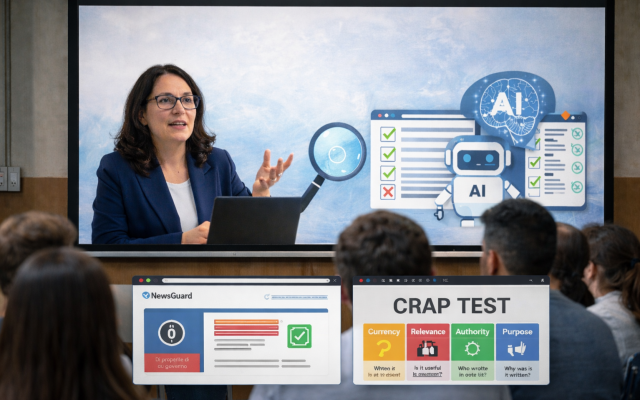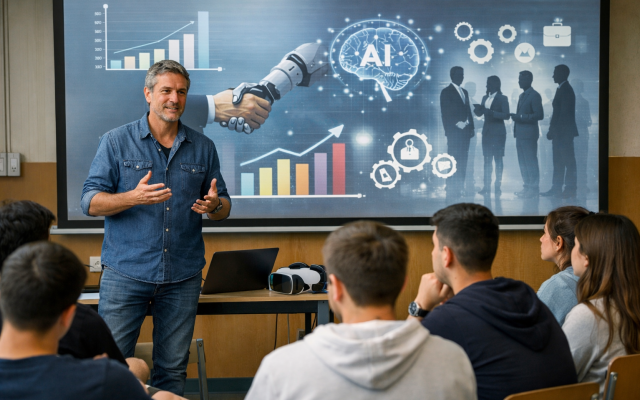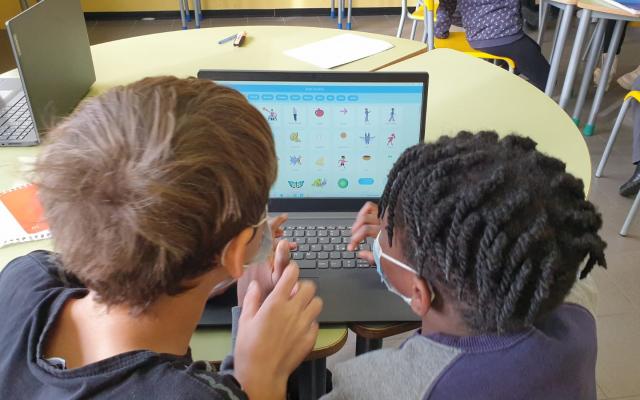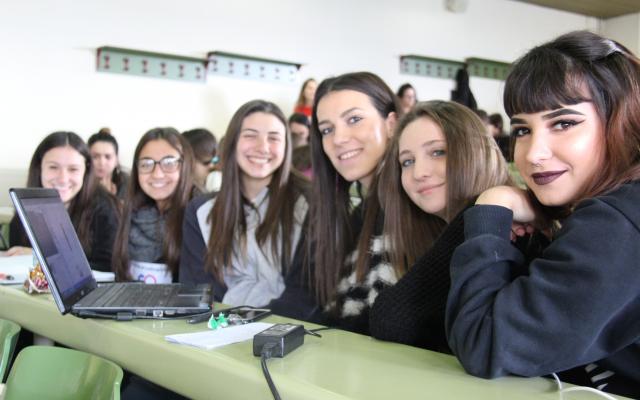Smart & Heart Rome on the Unitus web radio.
Last month, Cecilia Stajano and Vincenzo Sivero participated in the eighth episode of the “Generazione In²” programme on Radio Unitus, the official web radio of the University of Tuscia, produced by Giorgio Graziotti and Juri Taborri, who interviewed them.
Onelia Onorati prepared a shorter version of the episode that can be listened to here in full length.
Cecilia and Vincenzo spoke about inclusion, the history of the Fondazione Mondo Digitale, and its projects, especially Smart & Heart Rome which also involved the University of Tuscia. The Department of Economics, Engineering, Society, and Enterprise worked with students and professors from the Istituto Einstein Bachelet in Primavalle to create A.R.I.A. - Arduino for Environmental Pollution Detection (carbon dioxide, sulphur dioxide, benzene, and PM 2.5), which was presented at the AgroBot University Challenge at RomeCup 2024.
Who We Are
Cecilia: “I joined the Fondazione Mondo Digitale the year after its birth. The name refers to the world as including all places and all peoples, while the digital is what makes it inclusive because it connects it. In carrying out our everyday work, there is always the underlying theme of connecting people. Of course, schools are also part of this connection. Indeed, we need to start from schools to transmit concepts, as a well-educated student can radiate this knowledge to the rest of society. Smart & Heart is a virtuous example of this dynamic. Indeed, Tullio De Mauro and his sensitivity and commitment towards the digital literacy of Italians inspired our creation.
We Are International
Cecilia: One of our truly international projects is Coding Girls, which has reached its tenth edition this year. Developed thanks to the support of the US Diplomatic Mission in Italy, it mainly addresses young women to orient them towards technical-scientific studies. We turn to university students to transform them into trainers and role models for these girls.”
Internationalization is the word that Vincenzo can associates with Project Smart & Heart Rome, too. “We are working to extend it throughout Europe and to non-European countries. However, sustainability is also a strong project component. Thanks to our collaboration with the University of Tuscia, a PCTO course was developed for students to create a prototype with which to participate in the RomeCup contest, the multi-event dedicated to innovation. This activity took place in Primavalle, a peripheral and quite difficult area of Rome, where a participatory and inclusive context was created. We are also present in neighbourhoods where it is difficult to show one's potential, such as Tor Bella Monaca, Corviale, Primavalle and more generally in all the suburbs of Rome. We want to make students understand that they can work on something beautiful. At the same time, we are also working with teachers, so that they can truly educate, in the original sense of the word, that is, "bring out." Indeed, we are convinced that there is something to bring out in every person. This process also aims to be sustainable in a holistic way, involving parents and the entire community, so that schools can act as a reference point.”
We Are Inclusive
Cecilia: “I believe inclusion is a word that develops an "ecosystem" in the sense that it binds and creates a network and allows us to live well. If we reflect on it, the word inclusion also includes its opposite exclusion, so in a certain sense it would be more correct to talk about "complexity," which is a word that better summarizes both inclusion and exclusion.”
It is Heartfelt
Vincenzo: “I worked in Naples, in the so-called Spanish area and in Scampia, both of which are difficult contexts. I couldn’t do it without putting my heart into it. It’s the only way to reach out to these young people, who communicate with emotions. The heart also serves to accommodate all the complexities of the world of youth. Therefore, the word heart in the title of the project means that there is not only a need for technology, but for a technology led by the heart and by all the emotion necessary every time we deal with each other.”
Cecilia: “If the heart beats, it can move beyond obstacles, which are also represented by the hostile environment of suburbs. It all starts from the heart because if it beats at the right rhythm we function well as human beings. In addition, courage is also necessary to face situations that one would not be able to face with rationality alone.”
“Generazione In²” was born from the need to enhance the internationalization and inclusion strategies of the University of Tuscia. The radio project aims to provide the point of view of the students, who in each episode talk about their experiences of inclusion and integration in a new way, highlighting the importance of sharing, creating a digital and multicultural agora, which arises precisely from the sharing of such experiences. The “Generazione In²” podcast is a bridge between the students, the mobility and international cooperation office, and the inclusion and equity office, which, through Radio Unitus, promotes all the activities and projects aimed at enhancing aspects related to internationalization and inclusion.





